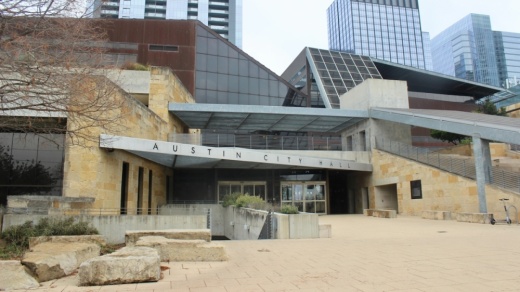A March 17 judgment from the 14th Court of Appeals in Houston dealt another blow to Austin officials' yearslong push to revise the city's land development code.
The 1980s land code governs what can be built in Austin and where. Over the past decade, the city moved multiple versions of a code rewrite through often contentious and tense public forums centered on the scope of any potential updates, its effects on the city housing stock and market, and property owners' rights amid the process.
That issue proved to be a final sticking point for the latest code revision, which in early 2020 had eventually made it through two of a required three City Council votes needed to make the change official. However, a resident lawsuit against the process ended up halting the effort that March after Travis County Judge Jan Soifer ruled the city skirted state law by not giving property owners proper notice of the impending changes or the ability to formally protest the rewrite.
The city appealed that ruling in the early days of the COVID-19 pandemic, and the case did not appear in court until last November. The March 17 opinion against the city from 14th Court Chief Justice Tracy Christopher comes just shy of two years after Soifer's judgment first stalled the revision.
“What it really boils down to is, the citizens in Austin are going to be heard, and their voices are going to be heard, and the city is going to have to acknowledge those protests," Doug Becker, an attorney for the citizen appellees, told Community Impact Newspaper.
In a statement, the city said it has yet to decide on any further legal action related to the land code proposal.
"We are reviewing the decision and will discuss with council before deciding next steps," a city spokesperson said.
Mayor Steve Adler, one of the backers of the code rewrite plan, also said more review of the issue is needed in the face of what he has pointed to as a local housing crisis.
"Whatever the final outcome in the courts, our city's most pressing challenge is still housing affordability and increasing housing supply. City Council needs to hear from the city attorneys about our options at this point," Adler said in a statement.
Austin has spent nearly $120,000 on the land development code litigation, according to the city.
Appeal denied
The city's notification of property owners, and their ability to push back on the land code revision, were the main issues brought to court by a group of 19 Austin residents in 2019. Rather than opposing the content of Austin's proposed zoning changes, the property owners contended that the city ignored state rules regarding the rezoning of property and the ability of neighbors to challenge such processes.
In Texas, cities are required to notify residents when land within a short distance of their property is under rezoning consideration. If enough residents object, the possible zoning change must pass by a higher margin at the city level.
Austin's land code revision would have effectively changed the zoning categories of every property in the city. While public hearings were held throughout the process, Austin did not undergo the state-mandated individual notification process and argued that traditional zoning rules did not apply to its sweeping rewrite given how broad the effort was.
"The city’s point here is not that people won’t have a significant change, given properties won’t have a significant change, but that the changes will be applied uniformly, categorically," Jane Webre, an attorney representing Austin, told a panel of the 14th Court last November.
Both Soifer and the appeals court disagreed, holding that resident notices are required and that the new land code would have to pass council with at least a three-fourths majority—nine votes—if the floor of 20% of relevant property owners protest the change.
"We are called upon to say what the law is, not what it should be, and the statute as written does not distinguish between revisions of varying degrees," Christopher wrote in her opinion. "Because the [land development code] revision proposes changes in zoning districts, boundaries, regulations and classifications, we conclude that the statute’s written notice and protest provisions apply."
Whether the city will seek to appeal the new ruling or bring the land development code rewrite back to council for a potential vote remains to be determined. For now, Becker said the outcome is one that could now provide a relevant precedent for all Texas cities.
"This doesn't just apply to Austin; it's a state law," he said. "The roadmap that the court of appeals laid down ... is one that I expect will get a lot of attention.”





